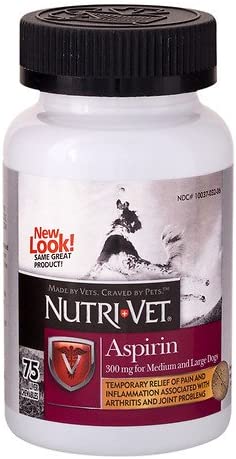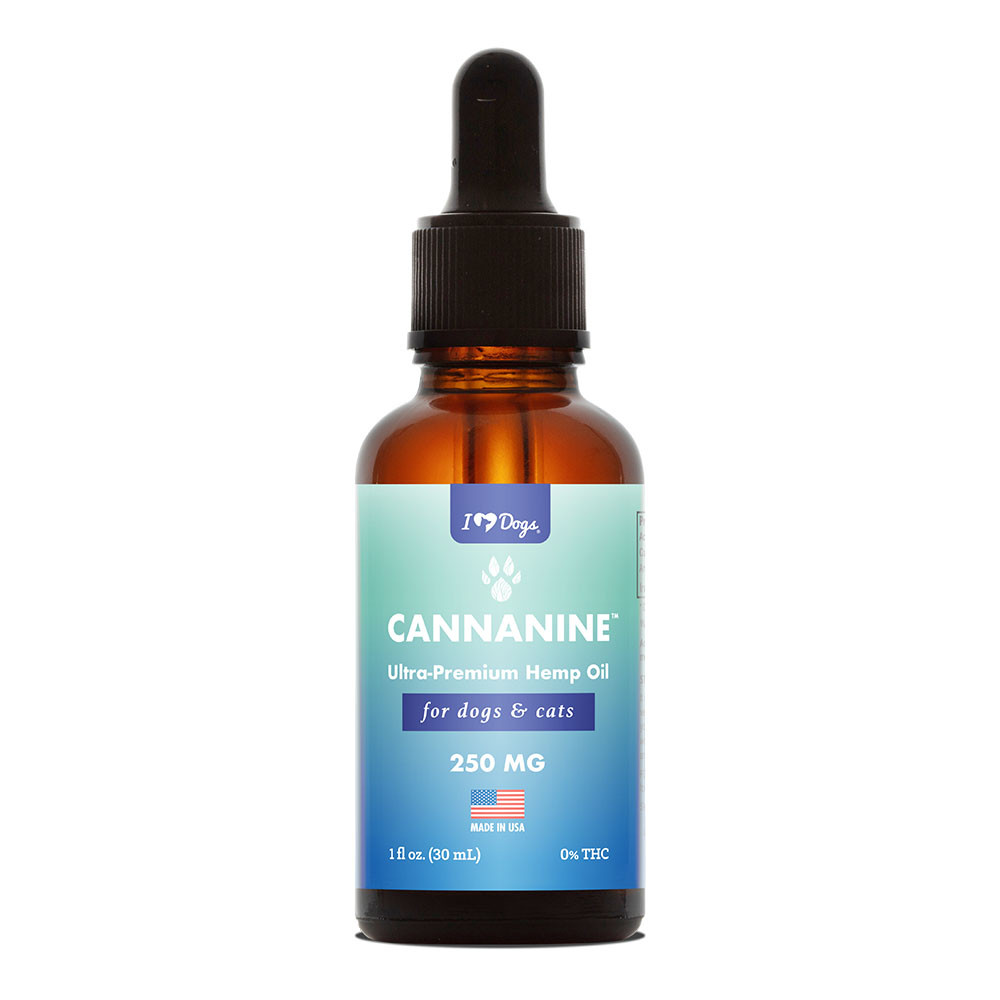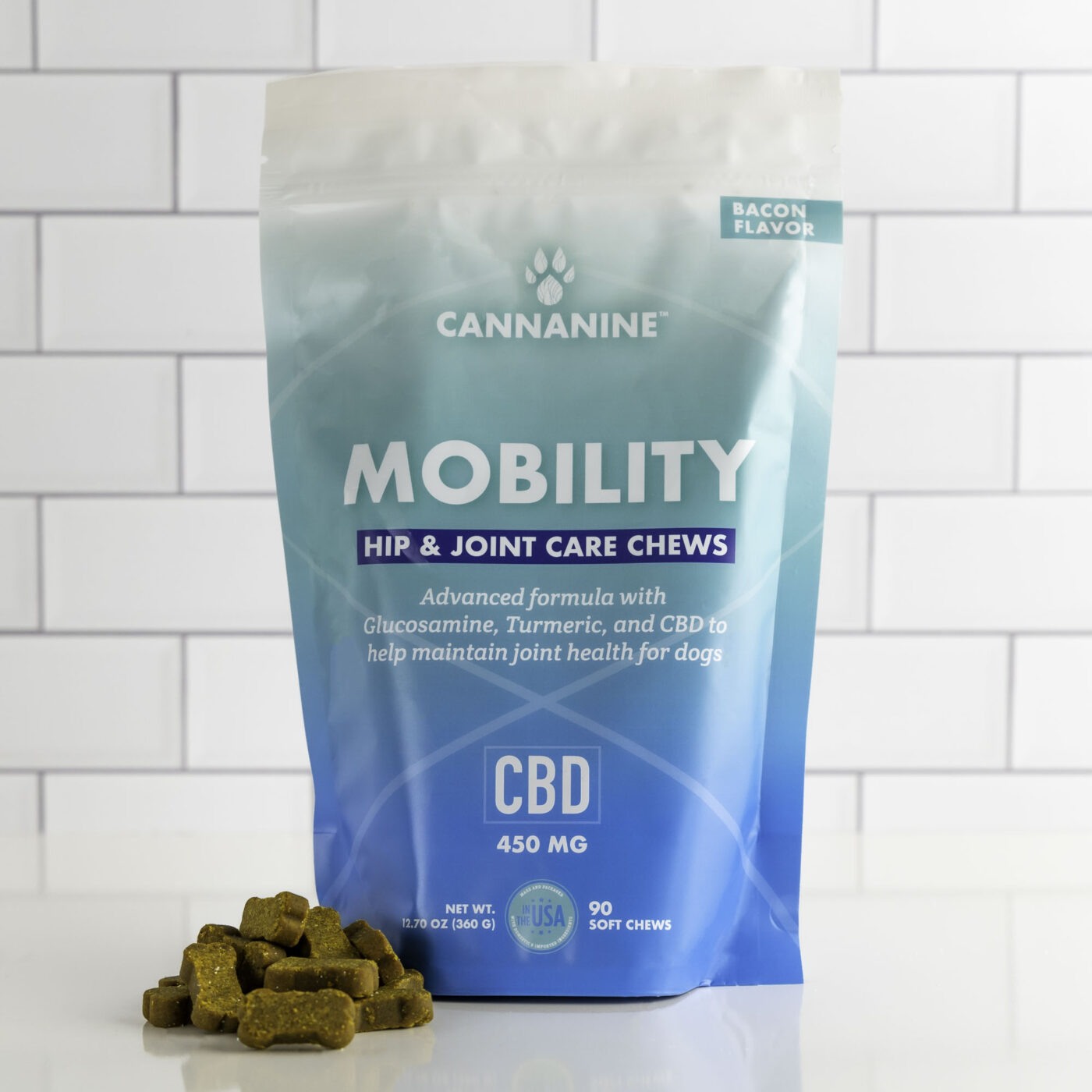Nothing is worse than seeing your dog in pain. It makes us want to do anything we can to lift their spirits and soothe their discomfort. In some cases, aspirin for dogs may help greatly. But like all medications, you shouldn’t use it as an easy way out. Instead, consult your vet and find out if aspirin is the right approach for your dog.
Aspirin is often the go-to way to relieve pain for humans. Yet, dogs won’t always react the same to it. So, how do you know if it is a good medication for your furry friend? Here we will cover aspirin’s uses, dosages, and potential side effects.

What is Aspirin for Dogs?
Aspirin might sound familiar as a human drug, but what is it and how does it work for dogs? It’s a non-steroidal anti-inflammatory drug (NSAID), which is a type of medication used for pain relief. It’s also known as “acetylsalicylic acid” and it falls under the same category as ibuprofen and carprofen.
Not all aspirin is equal, so what kind of aspirin can you give a dog? Regular adult aspirin is usually fine, but depending on your dog’s needs, baby aspirin or buffered aspirin might be more effective and safer.
How is Baby Aspirin Different?
Baby aspirin is a form of aspirin with a lower dose. It contains about a quarter of the active ingredients in adult aspirin, making it popular for small dogs. A baby aspirin tablet contains 81 milligrams while an adult aspirin has 325 milligrams.

Related: What’s the Best Selling Aspirin for Dogs on Amazon?
What is Buffered Aspirin for Dogs?
Buffered aspirin is a medication that’s a combination of aspirin and an antacid. Antacids, such as calcium carbonate and aluminum hydroxide, can prevent or correct acidity, especially in the stomach. Thus, you can use buffered aspirin for dogs instead of regular aspirin because it could reduce the risk of heartburn or an upset stomach. The dosage for buffered aspirin will be close to regular aspirin, but you should still follow a vet’s instructions.
How Does Aspirin Work for Dogs?
Aspirin can soothe your dog’s pain as it would for your body. Damaged tissues in the body release prostaglandins, which are chemicals that cause the tissue to swell. The nerves in the dog’s body then sense pain and send signals to alert the brain.
But if your dog takes aspirin, the medication blocks enzymes called cyclooxygenases, which create prostaglandins. Reducing this production also reduces the pain and swelling in your dog’s body. Aspirin also has the potential to reduce heart problems, blood clots, and risks of stroke. Yet, it is unlikely your dog will ever need it for those extreme conditions.
Related: 12 Best Dog Breath Fresheners

When is Aspirin Given to Dogs?
Aspirin is often given to dogs with joint pain, inflammation, a limp, or post-surgerical pain. It can relieve any type of pain in dogs but is not prescribed as often as other NSAIDs like carprofen. When it comes to your dog’s injuries, listen to your vet for the best treatment options.
Aspirin Dosage for Dogs
What is the dosage of aspirin for dogs? If your dog needs aspirin, your vet will let you know how much is safe. Never give your dog new medications without your vet’s approval. One dosage of aspirin for dogs should be given once or twice daily.
Your vet will give you a recommended dosage, but here’s the average aspirin dose for dogs based on weight:
- 0 – 5 pounds: 25 – 50 mg
- 5 – 10 pounds: 50 – 100 mg
- 10 – 20 pounds: 100 – 200 mg
- 20 – 40 pounds: 200 – 400 mg
- 40 – 60 pounds: 300 – 600 mg
- 60 – 80 pounds: 400 – 800 mg
- 80 – 100+ pounds: 500 – 1,000 mg

One adult aspirin is about 325 milligrams, so if you have a dog who is 20 to 40 pounds, about one pill at a time is an ideal dosage. If you have a small dog, you might have to cut the pill in half. Yet, large dogs might need more than one pill to reduce their pain.
Baby Aspirin for Dogs Dosage
How much baby aspirin for dogs is needed? If you have a small dog under 20 pounds, baby aspirin for dogs might be a better option.
Tiny dogs 5 pounds and under only need about a half of a baby aspirin pill. Dogs 5 to 10 pounds can have one baby aspirin pill at a time. Then, dogs 10 to 20 pounds might be able to have one and a half to two baby aspirins. But at that point, it might be easier to give them a half adult aspirin pill.
Again, these aspirin doses for dogs are only a general recommendation. Always talk to your vet to decide how much aspirin is safe and beneficial for your dog.
Related: 9 Best Pockets for Dogs
Aspirin for Dogs Side Effects
Aspirin can be a great source of pain relief for your dog. But for some canines, it can also have its downsides. Whenever you give your dog a new medication, keep an eye out for unusual behaviors.

Here are some common side effects of aspirin for dogs:
- Nausea
- Decreased appetite
- Vomiting
- Diarrhea
- Mucosal erosion
- Ulceration
- Black, tar-like stool
- Skin irritation
If your dog experiences one or more of these symptoms after taking aspirin, contact your vet right away. Do not give your pup more medication until your vet can run tests to find out why these problems are occurring.
Symptoms of Overdose or Allergic Reactions
In extreme cases, such as in the event of an overdose or allergic reaction, you may see some similar symptoms. Yet many of these signs are more severe and could even be life-threatening.

The following symptoms could be a sign of an overdose or allergic reaction:
- Loss of appetite
- Vomiting
- Diarrhea
- Hemorrhage
- Acid-based abnormalities
- Seizures
- Coma
- Death
Every time your dog takes a new medication, make sure to follow their behaviors closely. If you suspect your dog might have an aspirin allergy, consult your vet before symptoms worsen. Also, always give the prescription as directed by your vet to avoid an overdose.
Drug Interactions for Aspirin for Dogs
Sometimes taking two medications at the same time can cause extra concerns for your furry friend. The following medications should be used with caution when paired with aspirin:
- ACE inhibitors
- Alendronate
- Aminoglycosides
- SSRI antidepressants
- Blood glucose lowering agents
- Calcium channel blockers
- Corticosteroids
- Carbonic anhydrase inhibitors
- Digoxin
- Furosemide
- Glucosamine
- Heparin
- Oral anticoagulants
- Methotrexate
- NSAIDs
- Pentosane polysulfate sodium
- Phenobarbital
- Probenecid
- Sulfinpyrazone
- Spironolactone
- Tetracycline
- Tiludronate
- Vitamin E

If your dog takes any other medications, always make sure your vet knows before they recommend aspirin. This can help you avoid any future complications.
Risks of Aspirin for Dogs
Aspirin can be an excellent resource for animals in pain. For most canines, aspirin will do its job and soothe the pain. Yet, there are always risks involved, especially if it’s not used properly. So, is aspirin safe for dogs? In most cases, the answer is yes. But here are some negative sides to aspirin’s healing properties.
Aspirin Can Make Recovery Slower
As mentioned earlier, aspirin blocks prostaglandins to reduce pain. Even so, it could cause other problems as a result. Your dog’s body releases prostaglandins only when it needs them. When your dog is hurt, prostaglandins cause inflammation, fever, and other forms of pain. That pain isn’t all bad though. It’s a part of your dog’s natural recovery process.
If you use aspirin too often, it could cause your dog’s cartilage to break down. As you can imagine, that would only make joint problems worse.

Aspirin Can Cause Ulcers and Bleeding
Prostaglandins also protect the lining of your dog’s stomach and intestines. Without them, it’s common for ulcers to form, which is why ulceration is a possible side effect of aspirin use. Continued aspirin use after an ulcer forms could cause it to bleed.
Aspirin also functions as a blood thinner, which could stop blood clotting near a wound. Blood that doesn’t clot could cause a bleeding disorder or internal bleeding. Ulcers and the digestive tract are often the sources of bleeding. These health problems can go unnoticed for a long time, making them the most dangerous if they do occur.
Aspirin Can Cause Liver and Kidney Problems
For most dogs, aspirin should be rarely used. Regular use could lead to severe problems, especially related to the liver and kidneys. Your dog’s liver absorbs the toxins from aspirin. The liver can detoxify items, but frequent aspirin could be too much for it to handle, leading to liver failure.
Also, prostaglandins can help blood get to your dog’s kidneys. Aspirin could reduce blood flow to the kidneys, making them not function as well.
In most cases, your dog will be fine after taking aspirin. These risks only further prove the importance of using the proper aspirin dose for dogs.

Alternatives to Aspirin for Dogs
Aspirin for dogs can help with pain, but it’s not your only option. Other NSAIDs like carprofen, deracoxib, firocoxib, and meloxicam can also be safely given to dogs for pain. But as usual, talk to your vet if you think your dog needs one of those prescriptions.
Not all dog parents feel comfortable giving their dog drugs for pain. Instead, many look for more natural options. So, what can you give a dog for pain relief? It might not have to be a medication.
Alternative Solutions For Your Dog’s Health
Hemp
Hemp is the most popular option for dogs with injuries or consistent joint pain. All forms of Hemp, including Hemp oil for dogs and Hemp treats, have anti-inflammatory properties. Hemp stimulates your dog’s immune system to reduce inflammation faster. It also changes the way your dog perceives pain, thanks to the CB1 and CB2 receptors in your dog’s brain and nervous system. It’s a safe and natural way to help soothe your pup’s discomfort.

Joint Supplements
Joint supplements can also be a good alternative if your dog’s pain is related to aching joints. As dogs age, they start to slow down and not move as comfortably as they used to. Ingredients like glucosamine, chondroitin, turmeric, and MSM can soothe your dog’s joints by improving flexibility, reducing inflammation, and strengthening cartilage. Even if your dog is young and healthy, giving them a hip and joint supplement can keep them comfortable as they age.
A Healthier Lifestyle
In some scenarios, an unhealthy lifestyle causes dogs pain. Eating food that’s low in protein, vitamins, and supplements could cause your dog’s energy and health to decline. Underlying allergies or sensitivities could also be causing pain for your dog. So, instead of saving money on the cheapest dog food, consider modifying your dog’s diet to include all the essential nutrients.
A little exercise can also go a long way for a dog’s well-being. Overweight dogs are prone to joint pain, so exercising your dog more can help them feel young again. Physical therapy and water treadmill training can also help obese dogs lose excess weight. It might seem tempting to sneak your dog table scraps, but fatty foods can have lasting effects on your dog’s health.
The more effort you give toward your dog’s healthy lifestyle the less likely they’ll be to experience pain. Pain after surgery can’t be avoided and may need aspirin and other alternatives. Yet, you can handle joint-related pain and chronic pain in more natural ways.

Should You Give Aspirin to Your Dog?
Yes, aspirin for dogs can be a great choice for pain relief. But it’s not always the safest choice, especially for long-term pain. Consider your dog’s needs and consult your vet to determine if aspirin is the safest choice for your dog. Nothing is worse than seeing your furry friend hurting, so don’t wait to find a solution.
Related: What’s the Most Popular Aspirin for Dogs on Amazon?
- Best Joint Supplement for Dogs
- Best CBD Gummies for Dogs
- Goat's Milk for Dogs
- Skin & Coat Supplements for Dogs
- Weight Gain Supplements for Dogs
- Muscle Building Supplements for Dogs
- Heart Supplements for Dogs
- Multivitamins for Dogs
- Pill Pockets for Dogs
- Digestive Enzymes for Dogs
- Turmeric for Dogs
- Liver Supplements for Dogs
- Tear Stain Supplement for Dogs
- Breath Fresheners for Dogs
- Kidney, Urinary, & Bladder Supplements for Dogs
- Stool Eating Deterrent for Dogs
- Eye Supplements for Dogs
- Melatonin for Dogs
- Apple Cider Vinegar for Dogs
- Green Lipped Mussels for Dogs
- L Theanine for Dogs
- Chondroitin Supplements for Dogs
- MSM for Dogs
- Valerian Root for Dogs
- Chamomile for Dogs
- Boswellia for Dogs
- L Tryptophan for Dogs
- Yucca for Dogs
- Licorice Root for Dogs
- Bromelain for Dogs
- Papain for Dogs
- Devil's Claw for Dogs
- Quercetin for Dogs
- Hemp gummy for dogs
- Best Hemp Dog Treats
- Best Hemp Oil for Dogs
- Best Calming Treats, Chews, & Supplements for Dogs
- Best Bone Broth for Dogs
- Best Fish Oil for Dogs
- Best Probiotics for Dogs
- Best Hip Dysplasia Supplements for Dogs
- Best Colostrum for Dogs
- Best Quercetin for Dogs
- Best Greens for Dogs Supplements
- Best Vitamin C Supplements for Dogs
- Best Probiotic for Dog with Allergies
- Best Taurine Supplements for Dogs
- Best Dog Food Toppers
- Best Anal Gland Supplement for Dogs
- Best Dog Probiotic Powder
- Best CoQ10 Supplement for Dogs
- Best Liquid Glucosamine for Dogs
- Best Wrinkle Creams, Balms, and Wipes for Dogs
- Best Puppy Calming Treats
- Best Colloidal Silver for Dogs
- Best Adaptogen Supplements for Dogs
- Best Cognitive Supplements for Dogs
- Best Bee Pollen for Dogs
- Best Vitamin A Supplements for Dogs
- Best Vitamin E Supplements for
- Best Liquid Glucosamine Supplements for Dogs
- Best SAM-e Supplements for Dogs
- Best Hyaluronic Acid Supplements for Dogs
- Best Apple Cider Vinegar Supplements for Dogs
- Best Diarrhea Medicine for Dogs
- Best Milk Thistle for Dogs
- Best Turkey Tail Mushroom Supplements for Dogs
- Best Astaxanthin Supplements for Dogs
- Best Lutein Supplements for Dogs
- Best Electrolyte Supplements for Dogs
- Best Coconut Oil for Dogs
- Best Prenatal Vitamins for Dogs
- Best Puppy Milk Replacements
- Best Iron Supplements for Dogs
- Best Dewormer Products for Dogs
- Best Mange Medications for Dogs
- Best Cough Relief Products for Dogs
- Best Sinus Relief Products for Dogs
- Best Collapsed Trachea Supplements for Dogs
- Best Fireworks Anxiety Relief Products for Dogs
- Best Thunderstorm Anxiety Relief Products for Dogs
- Best Travel Anxiety Relief Product for Dogs
- Best Supplements for a Dog with a Torn ACL
- Best Supplements for a Dog with Patellar Luxation
- Best Supplements for a Dog with Intervertebral Disc Disease
- Best Zinc Supplements for Dogs
- Best Biotin Supplements for Dogs
- Best Tart Cherry Supplements for Dogs
- Best Resveratrol Supplements for Dogs
- Best Ginkgo Biloba Supplements for Dogs
- Best Ashwagandha Supplements for Dogs
- Best Supplements for Dogs with Cushing's Disease
- Best Adrenal Supplements for Dogs
- Best NAD+ Supplements for Dogs
- Best NMN Supplements for Dogs
- Best Supplements for Dogs with Dementia
- Best Supplements for Dogs with CCD(Canine Cognitive Dysfunction)
- Best Fiber Supplements for Dogs
- Best Spirulina for Dogs
- Best Hairball Remedies for Dogs
- Best Eye Drops for Dogs with Allergies
- Best Magnesium Supplements for Dogs
- Best Brushes for Double-Coated Dogs
- Best Dandelion Root Supplements for Dogs
- Best Probiotic for Dogs with Yeast Infections
- Best Flaxseed Oil for Dogs
- Best Chamomile Supplements for Dogs
- Best Lavender Supplements. Treats & Sprays for Dogs
- Best Collagen Supplements for Dogs
- Best Kelp Supplements for Dogs
- Best Activated Charcoal for Dogs
- Best Slippery Elm Supplements for Dogs
- Best Supplements for Dogs with Seizures & Epilepsy
- Best Antioxidant Supplements for Dogs
- Best Ubiquinol Supplements for Dogs
- Best Hormone & Glandular Supplements for Dogs
- Best Thyroid Supplements for Dogs
- Best Iodine Supplements for Dogs
- Best Dog Shedding Supplements for Dogs
- Best Detox Supplements for Dogs
- Best Postbiotics for Dogs
- Best Aspirin Products for Dogs
- Best Dog Anti-Nausea Products
- Best Dog Mouthwashes
- Best Camelina Oils for Dogs
- Best Hemp Seed Oils for Dogs
- Best Natural Anti-Inflammatories for Dogs
- Best Cancer Supplements for Dogs
- Best Sardine & Anchovy Oils for Dogs
- Best Fatty Acid Supplements for Dogs
- Best Chia Seed Supplements & Treats for Dogs
- Best Olive Oils for Dogs
- Best Amino Acid Supplements for Dogs
- Best Moringa Supplements for Dogs
- Best Echinacea Supplements for Dogs
- Best Cranberry Supplements for Dogs
- Best D-Mannose Supplements for Dogs
- Best Nettle Leaf Supplements for Dogs
- Best Marshmallow Root Supplements for Dogs
- Best Astragalus Supplements for Dogs
- Best Pumpkin Seed Supplement for Dogs
- Best Supplements for a Dog Wetting The Bed
- Best Blueberry Supplement for Dogs
- Best Bromelain Supplements for Dogs
- Best Yucca Supplements for Dogs
- Best Ginger Supplements for Dogs
- Best Rosehip Supplements for Dogs
- Best Allergy Medicines for Dogs
- Best Reishi Mushroom Supplement for Dogs
- Best Maitake Mushroom Supplement for Dogs
- Best Chaga Mushroom Supplement for Dogs
- Best Shiitake Mushroom Supplement for Dogs
- Best Cordyceps Mushroom Supplement for Dogs
- Best Lion's Maine Supplement for Dogs
- Have question? - Ask in our Dog Health Forum





 Toledo, United States.
Toledo, United States.